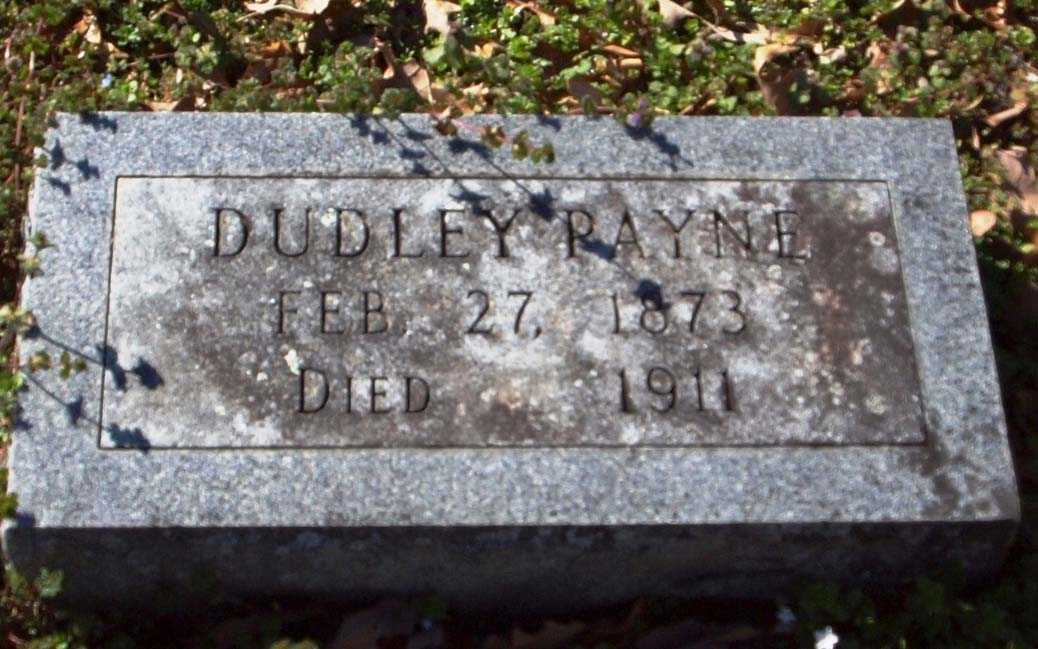A baseball researcher’s Payne: Dudley that is
April 22-28, 2019
By Kris Rutherford
When researching the lives of 19th century minor league ballplayers, particularly those from the Texas League, first consumed me a dozen or so years ago, I knew nothing about genealogy. Actually, I really didn’t care. I was interested in how many home runs and stolen bases players of the day did, or didn’t, tally. But I soon realized where these ballplayers came from and what they did after their careers ended was just as much a part of their stories, and in most cases, far more important than the few years spent on a dusty diamond. Shifting my focus to players’ entire lives allowed me to uncover some wonderful tales and correct mistakes baseball researchers had accepted as facts for over a century.
Whatever the obsession, every researcher finds one elusive subject or fact that becomes cause for lost sleep. For the past decade, mine has been Dudley Payne, a native Texan playing briefly in the Texas League followed by a season in the Arkansas State League. A couple of weeks ago, I finally uncovered the sliver of information opening the crack to Dudley’s story. As it turns out, what I needed to bring Dudley Payne back to life has been resting unnoticed in Hot Springs for over a century.
Dudley Payne was born in Palestine, Texas, on Feb. 27, 1874. His father, Dr. Joseph B. Payne, a Georgia native, graduated from Memphis Medical College in 1855 and moved to Magnolia, Arkansas, where he married Dudley’s mother, Martha Harper, a year later. The couple had their first son, Wallace, in 1857.
During the Civil War, J.B. Payne served as a surgeon with the Confederate Army’s 36th Arkansas Infantry, Company C. The regiment never strayed far from home, mostly viewing rather than participating in combat at Prairie Grove, Jenkins Ferry, Poison Spring, and in the Trans-Mississippi Campaign. By 1864, Dr. Payne left military service and opened a medical practice in Palestine. Over the ensuing decade, Martha gave birth to four children including Dudley. By 1880, the family returned to Arkansas where Dr. Payne practiced in Hot Springs, where the “healing” waters had already made the city a popular destination for Americans suffering a variety of maladies.
As Dudley Payne grew up, he learned to play baseball in Hot Springs, no doubt inspired by the big league teams that began visiting the city for spring training in the mid-1880s. By the time Dudley came of age, he had developed into an impressive pitcher, one the Texas League’s Houston Mud Cats signed to a contract in 1892. Over the course of his rookie season, the 18-year-old pitcher posted a 23-10 won-loss record, a win total leading all Texas League pitchers. Then, Dudley Payne fell from the baseball record books for three seasons.
In 1896 Payne resurfaced on the roster of the Sherman Students, a team that along with Dallas, Ft. Worth, and Denison made up the Texas Association’s northern circuit of teams. When Sherman relocated to Paris, Texas, a few weeks into the season, Payne became one of few experienced players on an inferior roster. Sherman and Paris both used Payne as an outfielder rather than a pitcher, a fact suggesting he may have been injured during the 1892 season and spent the next few learning to play a new position. Dudley soon proved he was hardly suited for the outfield. Playing in 25 games, he batted just .230 and soon left Paris for Hot Springs. A year later, he turned up in the Arkansas State League, co-managing and playing for his adopted hometown team, the Hot Springs Bathers. It was Dudley’s last season in professional baseball.
At the end of the 19th century, Dudley became a dentist, initially opening a practice in Athens, Texas. He soon married Frances Jones, also a native of Palestine. The couple had three sons in Texas and Ardmore, Oklahoma, but in short order the family moved to Hot Springs where Dudley’s father continued his medical practice following his wife’s 1901 death. Dudley’s brother, Brodie, worked as an attorney in Hot Springs, filling the shoes of Wallace, who passed away in 1895.
Dudley Payne lived in what many considered the healthiest city in the country, at least if one was already ill. Several years of practicing dentistry and working inside the mouths of patients with a variety of illnesses was bound to catch up with him, particularly during an era when consumption, or tuberculosis, was an epidemic across the United States. Whether or not he contracted tuberculosis or some other illness is unknown, but by the end of 1911, Dudley Payne, D.D.S., was dead. He is buried in Hot Springs’ Greenwood Cemetery. Six years later, the old surgeon J.B. Payne died in Argenta, and his body was returned to Hot Springs for burial beside his wife and sons.
And with that, the life of another early Texas Leaguer is in the books. In some ways, putting Dudley Payne’s case to bed brings sorrow; after all, the chase is the best part of this obsession. But hundreds of faceless names from the annals of the Texas League, the oldest minor league circuit in baseball, hold stories remaining to be discovered.
Kris Rutherford lives in Maumelle and has authored three books and over 60 articles on Texas League Baseball History, many published on the League’s webpage. He has written three youth sports novels and collaborated on two additional book-length works. A member of the Internet Baseball Writers Association of America and the Society of Baseball Research, he is a contributor to the new book, “The Team that Couldn’t Hit: The 1972 Texas Rangers.” Kris and his wife, Karen, own and publish the Roxton Progress, a small North Texas newspaper.
PHOTO CAPTION:
Dudley Payne – a Texas Leaguer with a brief stint in the Arkansas State League – has been resting in Hot Springs for over a century. (Photo provided)



